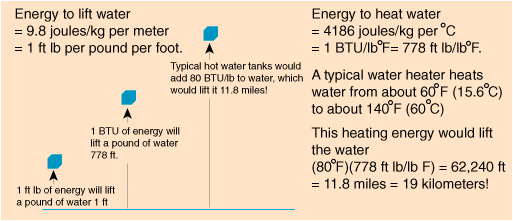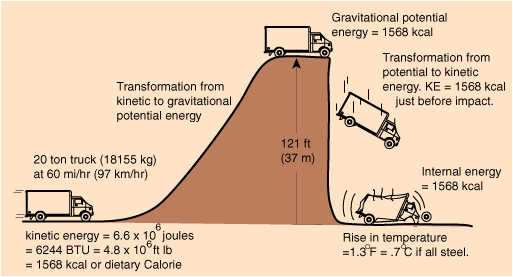Lifting vs Heating Water
In a highrise building, all of the water which is used on the upper floors must be lifted to those heights. It must be a major expenditure of energy! It is instructive to compare the energy used to lift the water to that necessary to heat the water in a hot water tank. The moral to this story is that any energy conservation strategy, whether personal or national, should focus on heating and cooling applications because they are much more energy intensive than are strictly mechanical operations!
The moral to this story is that any energy conservation strategy, whether personal or national, should focus on heating and cooling applications because they are much more energy intensive than are strictly mechanical operations!
Energy concepts
Physical units
